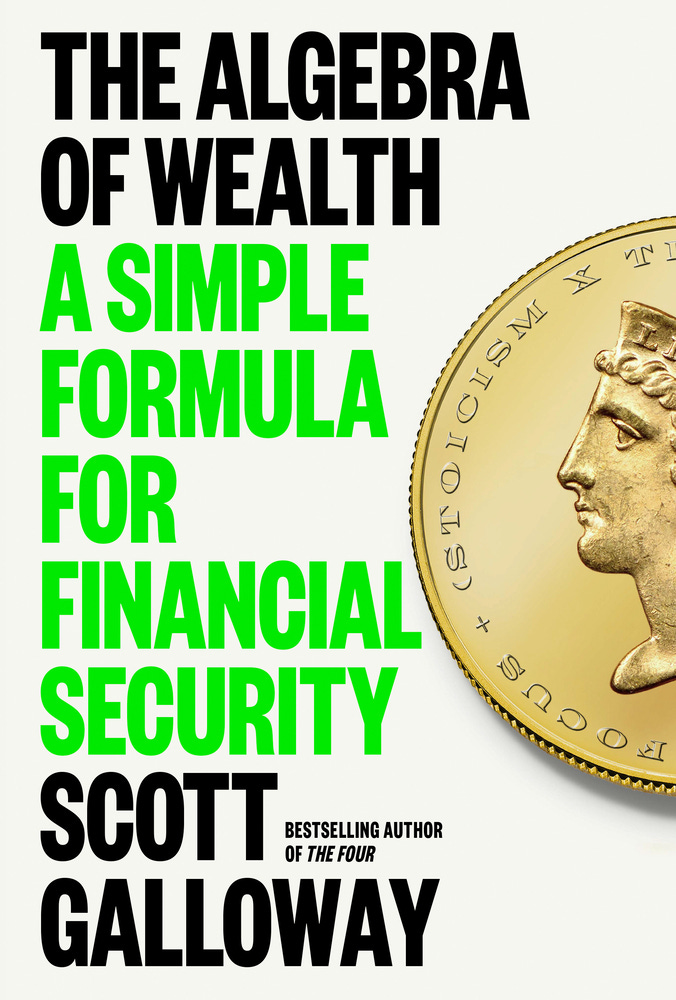When I was younger, I had a weakness for shock jocks. I listened to Howard Stern for years and could find the person under the crassness of Tom Leykis. My patience for that sort of male humor has faded with time, and I have a bit of shame over putting so much casual misogynist content into my head. Scott Galloway isn’t a shock jock, but there is something similar in his approach, his frankness, his unapologetic focus on masculinity, and his penchant for dick jokes. And yet he’s also great at distilling complex financial and economic matters into easy-to-understand nuggets and his take on politics is incisive and often accurate. His podcast with Kara Swisher, Pivot, is my top must-listen.
Because he is a professor and father of boys, Galloway has a particular focus on teaching young men. I picked up The Algebra of Wealth, not so much to teach myself anything new but to learn better ways of connecting with people on issues of financial literacy. Sharing the nature of compounding and the value of saving tends to feel dry and impactless to someone who is trying to pay rent. Yet even saving a little bit each month will, over time, create a tidy nest egg. Galloway has a great line in his chapter on time: “Finance requires us to consider alternative timelines, but we often fail to do so.” That pretty much describes my 20s; I was all action, no thought.
Galloway says you should be “rationally obsessed” with your money. This is a life’s work, to track your money and your investments, but to neither chicken little yourself into panic nor loft yourself into higher spending. When I worked at The Motley Fool, we talked with members about this a lot. People made themselves miserable staring at their portfolio or at tickers. It not only impacted their quality of life, but it also often led to impulsive decision-making. If you know you fall into this category, you have two potential paths — either set up systems that allow you to automate your investing, saving and spending as much as possible so you don’t have to look as often, or do the psychological work to figure out what money really means to you and what emotions it is tied to. The former is the far easier path, but the latter pays long-term benefits in every aspect of your life, so doing both is probably really the best option.
When it comes to lamenting my own misspent-in-all-the ways youth, I often think of the Billy Joel line from ‘Keeping The Faith’: “the good ole days weren't always good, and tomorrow ain't as bad as it seems.” Had I read a book like Galloway’s when I was young and actually paid attention, perhaps I would have more as society defines it, a big house, a big bank account, a big life. Alas, hustle always felt like a dance I could never learn the steps to. I get bored easily, I’m lazy and easily distracted if I don’t see the point of something. If anything, I profited by my own inaction; I was just risk-averse enough not to interrupt compounding and chuck it all in on some grand ambition.
There are some finance guys who tout their wealth. Galloway is one of those. He’s a flashy spender. For those who want a lot of wealth, that usually means a lot of work, and a lot of planning is required. His book isn’t called the algebra of just getting by. But there’s a sweetness to Galloway, too, an earnestness. He wants young people to learn the lessons that took him (and most of us) so many years. I’m not sure there are any ways around making mistakes, that too, a form of compounding that hopefully leads to at least some incremental change.



